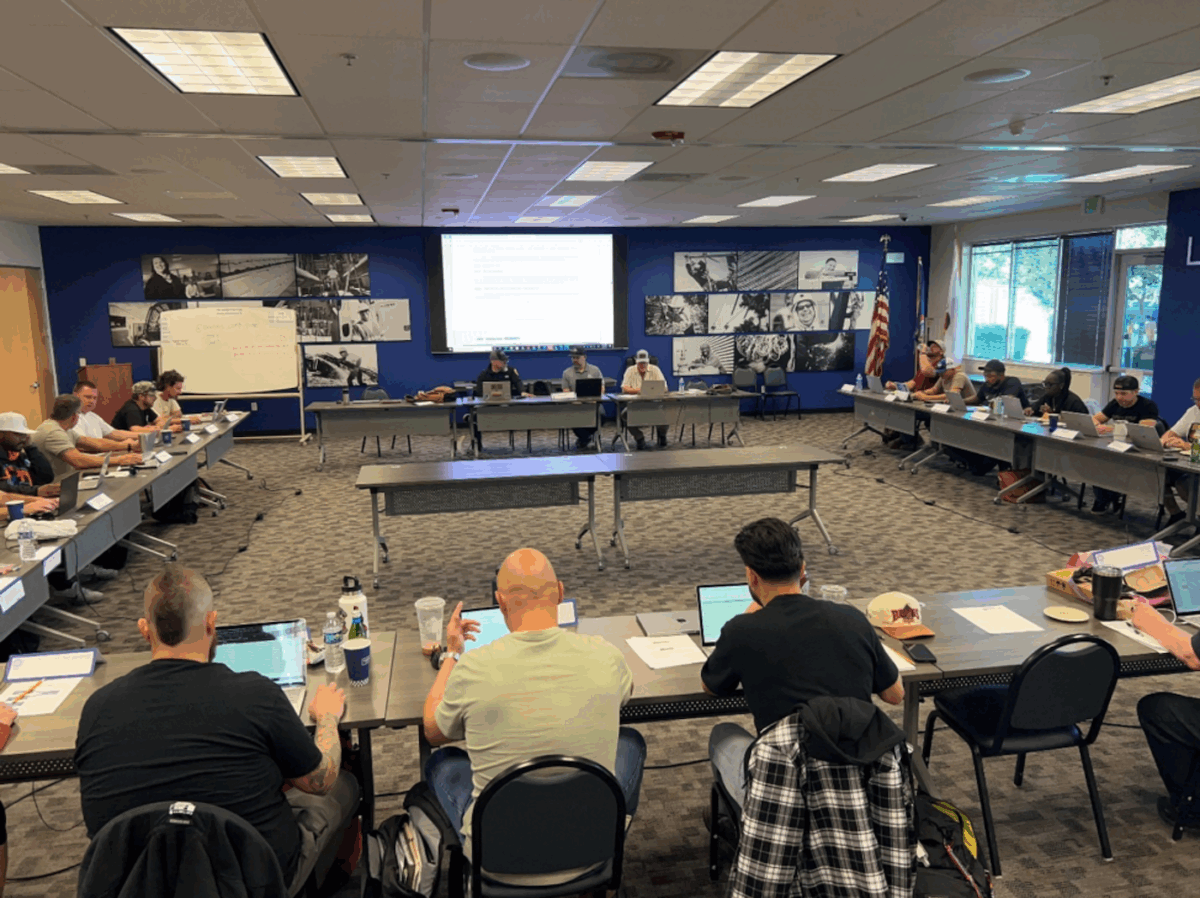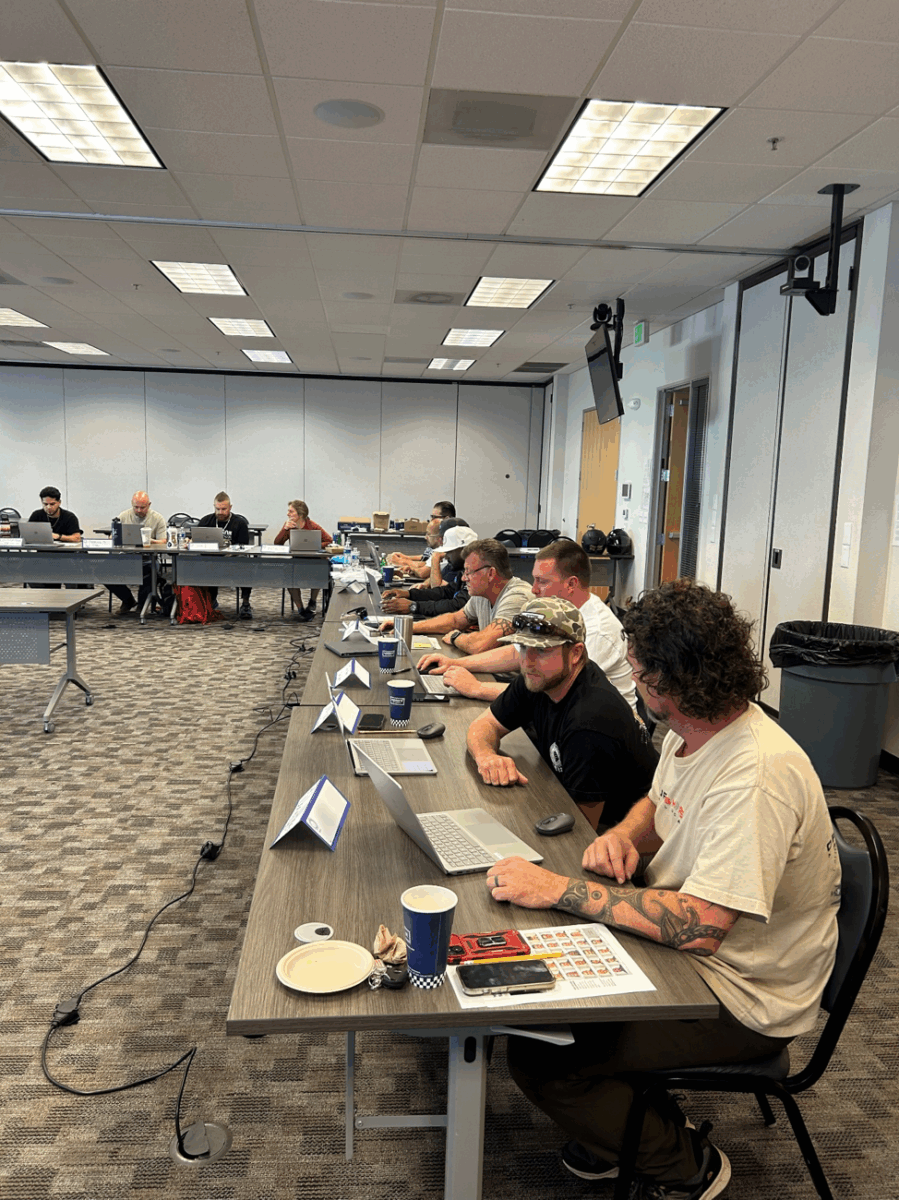Welcome! The PG&E Negotiations process has begun. Your participation remains vital bargaining begins!
On Tuesday, July 1, 2025, IBEW 1245 and PG&E exchanged opening proposals at the IBEW 1245 Union Hall in Vacaville, California.
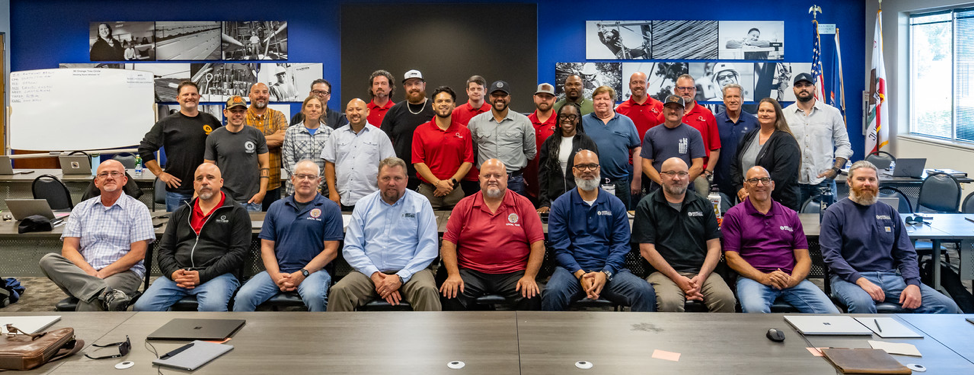
The PG&E Negotiating Committee Exchanges Proposals with PG&E on July 1, 2025
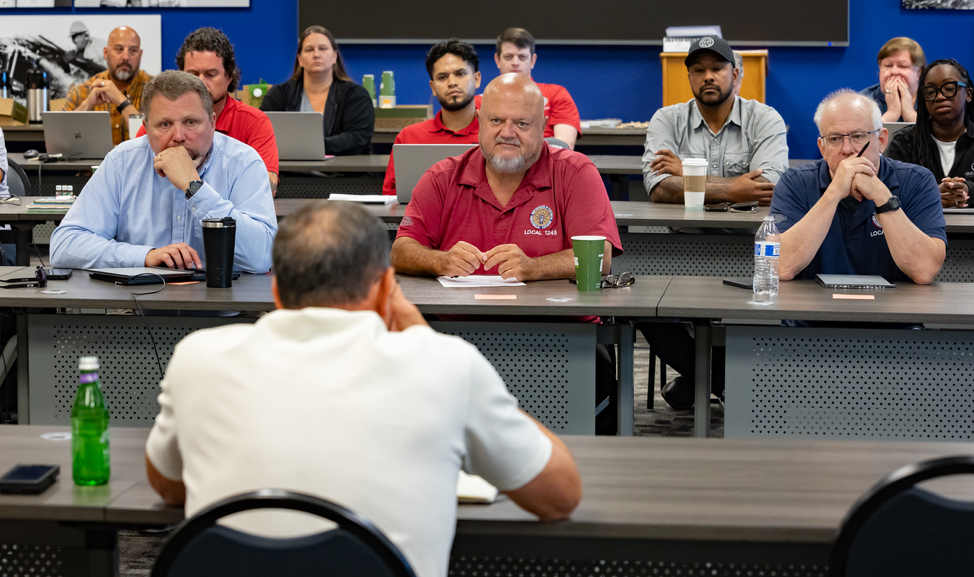
IBEW 1245 Business Manager, Sr. Assistant Business Managers Ralph Armstrong & Doug Girouard & Committee Members listen to PG&E VP for Co-Worker Relations Andy Williams at Proposal Exchange
IBEW 1245 Business Manager Bob Dean, joined by senior staff and the twenty-five-member, rank and file bargaining committee, led the exchange of opening proposals.
PG&E’s fourteen-member management team was led by Andy Williams, Vice President of Co-Worker Relations and Matt Levy, Senior Director of Labor Relations.
PG&E submitted sixty-five (65) proposals.
IBEW 1245 submitted ninety-four (94) proposals, based on 13,000 proposals representing our members’ voices.
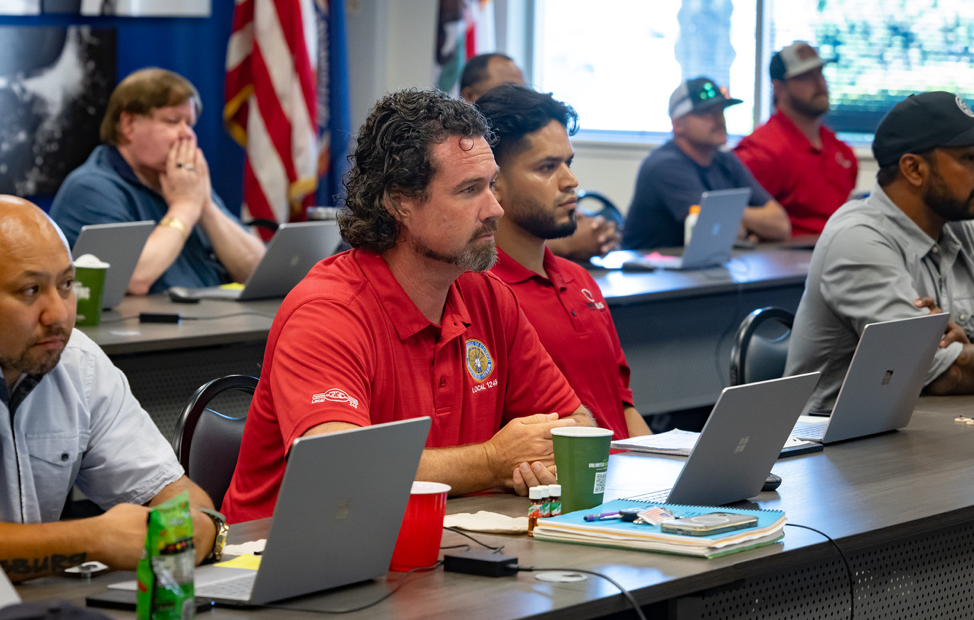
Bargaining committee members
IBEW 1245’s opening proposals represent the culmination of weeks and countless hours of intensive work by the bargaining committee.
Over the next several weeks, both sides will clarify questions, examine operating assumptions, cost out the proposals and return to the table in late August.
For updates, please click here.
____________________________________
PG&E NEGOTIATIONS’ CALENDAR
July 1, 2025 (Completed): Company and Union exchange proposals.
Summer 2025 (In progress): Parties review and evaluate proposals.
Late August 2025: Bargaining process begins.
_____________________________________________________________________________________
Meet Your IBEW 1245 Bargaining Committee
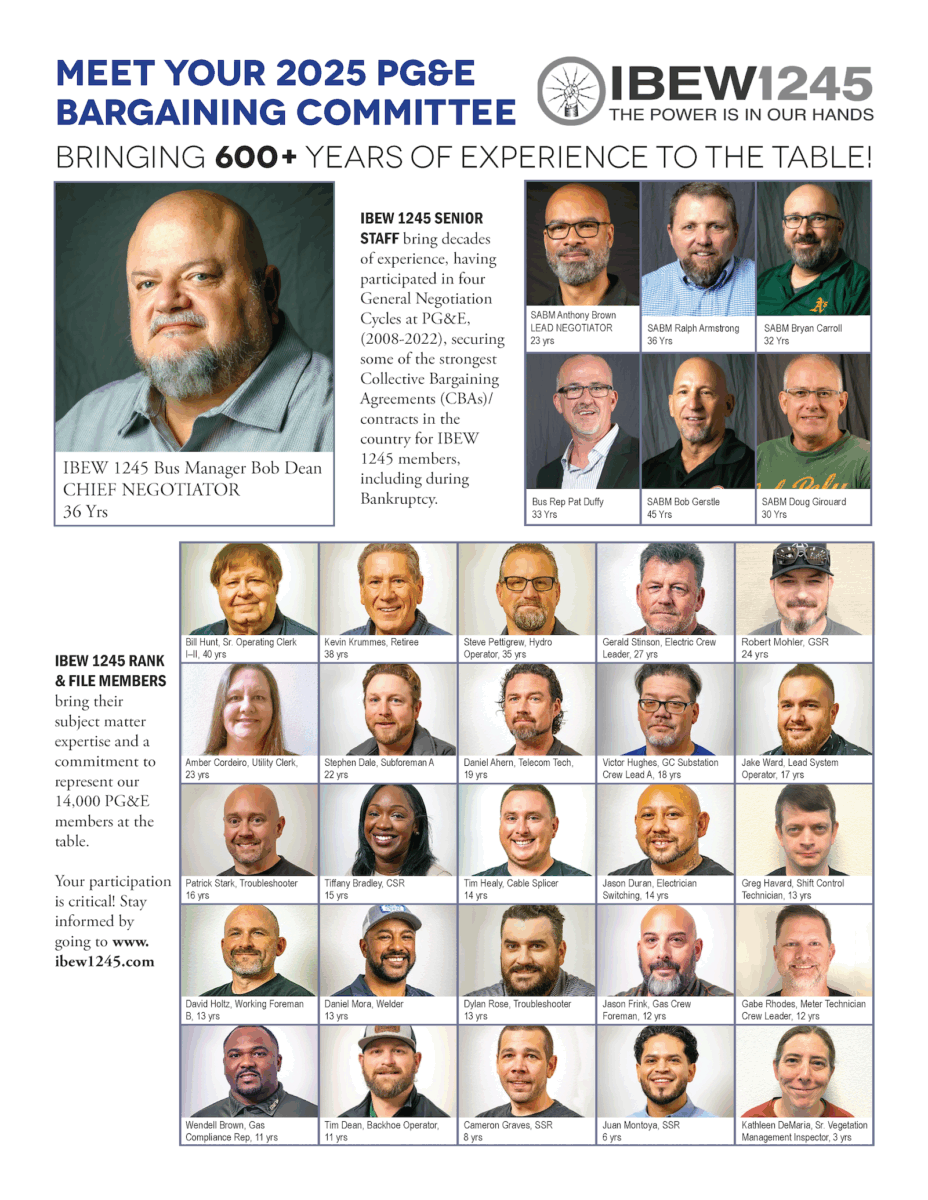 _____________________________________________________________________________________
_____________________________________________________________________________________
More Information
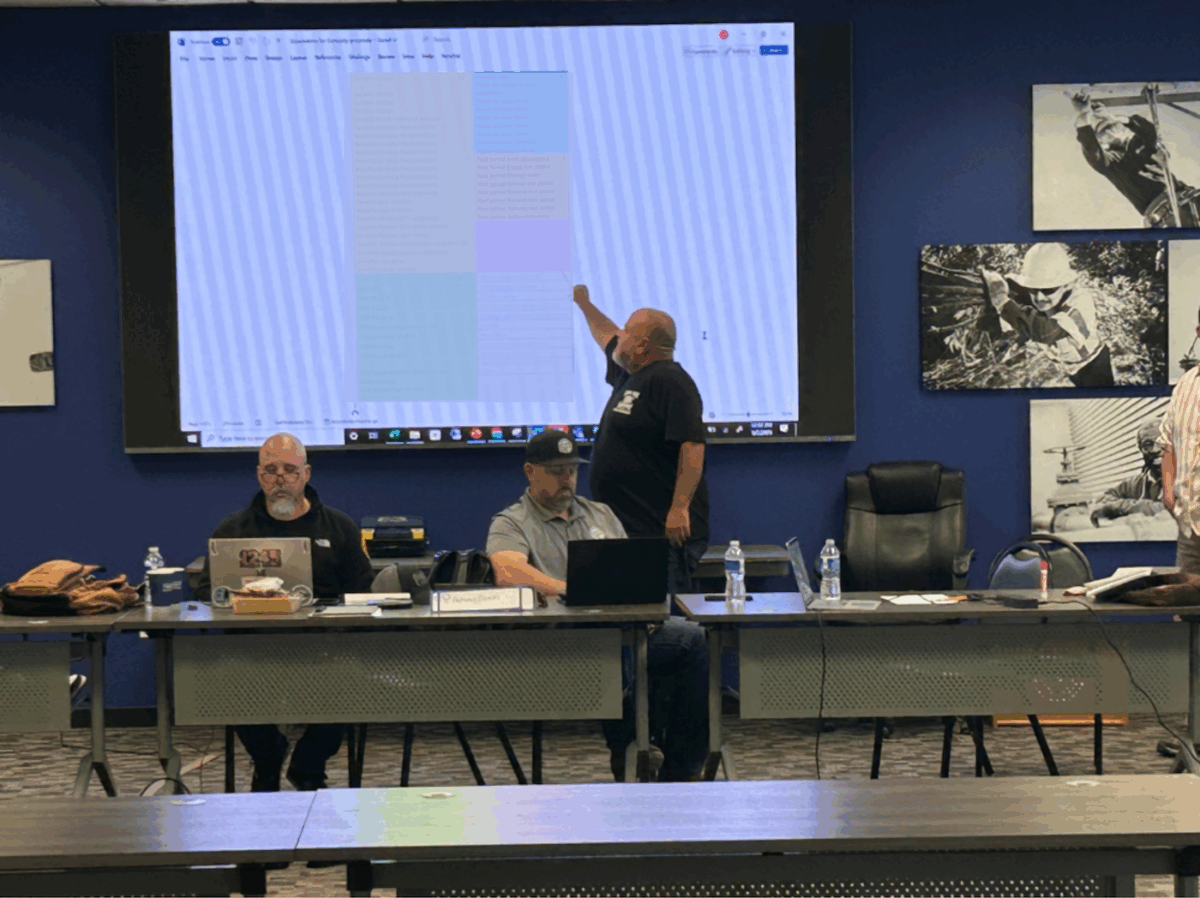
IBEW 1245 Business Manager & Chief Negotiator Bob Dean addresses PG&E Bargaining Committee
Find all the latest Bargaining Updates by clicking here.
Scroll down for a Glossary of Common Terms in Union Negotiations.
Thank you for your attention to these contract negotiations. Check back often for updates. An informed and engaged membership is a measure of our strength at the Table!
_____________________________________________________________________________________
Glossary of Common Terms in Union Negotiations
Collective Bargaining: The process in which working people, through their unions, negotiate contracts with their employers to determine their terms of employment, including pay, benefits, hours, leave, job health and safety policies, ways to balance work and family, and more. (https://aflcio.org/what-unions-do/empower-workers/collective-bargaining)
Bargaining Unit: The group of employees within a workplace who share similar job duties and interests, and are represented by a single labor union when negotiating with management regarding working conditions, wages, and benefits through collective bargaining.
Table Agreement(s): Agreement(s) on specific issues at the bargaining Table between the employer and the Union during the process of negotiating a comprehensive Collective Bargaining Agreement.
Tentative Agreement (T.A.): A comprehensive negotiated agreement between an employer and the union that defines the term/length of the agreement, wages, benefits, hours, leave, job health and safety, medical benefits and other working conditions that is presented to the full bargaining unit for ratification.
Collective Bargaining Agreement (CBA): The legally binding agreement or Memorandum of Understanding (MOU) that is the result of negotiations between an employer and a union representing employees and which is ratified by the Bargaining Unit through a secret ballot vote. Also commonly referred to as “the Contract.”
Term: Length of agreement.
General Wage Increase (GWI): General Wage Increases (GWI) are mutually agreed upon annual wage increases, commonly referred to as “cost of living” increases.
Equity Adjustments: Additional wage adjustments negotiated that affect specific work groups and/or classifications.
Good Faith Bargaining: Good faith bargaining is a legal requirement that both parties in a negotiation must act in good faith to reach an agreement.
Bad Faith Bargaining: Bad faith bargaining occurs when a party in labor negotiations is not acting in good faith, with the intention of preventing an agreement from being reached. It is an unfair labor practice (ULP) under the National Labor Relations Act (NLRA) and can result in penalties.
Impasse: When the employer and union are unable to resolve issues and are at a stalemate, they may declare impasse, resulting in more fact finding, mediation or arbitration.
Last, Best and Final: a formal proposal presented by one party (usually the employer) to the other, signifying that it is their absolute final offer and they will not negotiate further on the terms, marking the end of their bargaining position; this offer is typically presented when a stalemate is reached and is often put to a vote by union members to decide whether to accept or reject it. Needs to contain all 3 descriptive words to meet the above definition.
Evergreen Status: Evergreen status means the contract automatically renews after the expiration date, unless otherwise indicated by either party.
